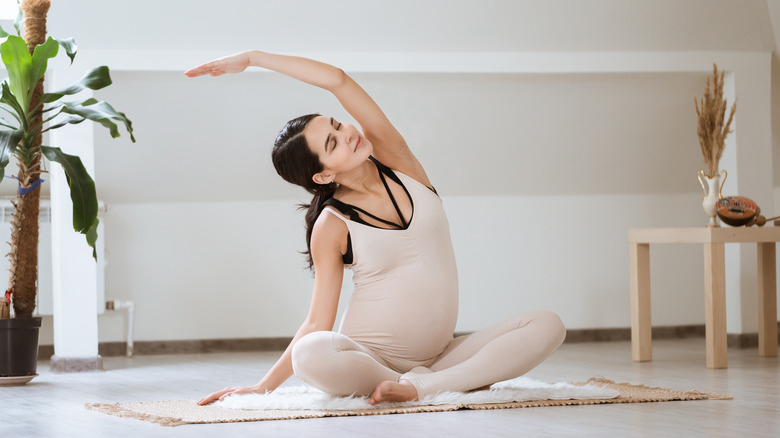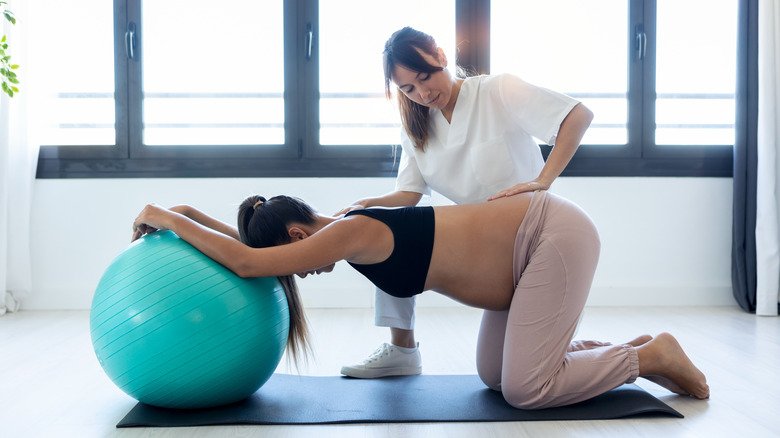Why You Should Consider Doing Pilates While Pregnant
Are you on the fence about practicing Pilates while pregnant? As you might have heard, this form of exercise benefits the mind and body. Although it's not specifically designed for pregnant women, it may relieve stress and improve overall fitness. Moreover, it can boost your immune system, enhance mental focus, ease back pain and other aches, and increase energy levels, according to 2015 research published in Procedia — Social and Behavioral Sciences (via ScienceDirect). Perhaps not surprisingly, Pilates has both immediate and long-term benefits, from better sleep to improved mood.
This mind-body practice is safe for moms-to-be, but you'll need to adjust your training regimen. "The goal during pregnancy isn't to try and touch your toes or increase your flexibility," says Pilates instructor Wendy Foster (via Pilates Anytime). That's because during pregnancy the body produces a lot of relaxin, the hormone that works to relax the joints, ligaments, tendons, and muscle fibers to prepare for labor and delivery, making them less stable and putting you at risk for injury (via 40Week Fit).
"Pilates is one of the only exercise methods out there that will give you the muscle strengthening, the stretching, and the breathwork you need," says Foster. But these are just a few of its many benefits.
The surprising benefits of prenatal Pilates
Regular physical activity does more than just keep you fit — it can also help with back pain, constipation, high blood pressure, and other pregnancy complications, notes the American College of Obstetricians and Gynecologists (ACOG). To reap the benefits, aim for at least 150 minutes of moderate-intensity cardiovascular exercise per week. Brisk walking, swimming, yoga, and stationary bike workouts are just a few examples. Another great choice is modified Pilates, says the ACOG. In a 2018 survey, 23% of pregnant women cited "improved social well-being" as one of the key benefits of Pilates (per the Journal of Bodywork and Movement Therapies). About 12% said that Pilates helped them build a strong pelvic floor.
The pelvic floor muscles support your bladder, uterus, and other internal organs. If these muscles are weak or tight, you may experience incontinence, organ prolapse, and pain during intercourse, among other issues. Pilates and exercises targeting the pelvic floor can prevent these problems or minimize their impact and speed up recovery from childbirth.
Practicing Pilates during pregnancy may also reduce labor pain and make delivery easier, suggests a 2021 study published in BMC Pregnancy and Childbirth. As an added benefit, you'll get stronger and more flexible, breathe more efficiently, and feel better overall. What's more, Pilates may help ease the pain associated with pregnancy, according to 2018 research featured in Complementary Therapies in Clinical Practice. To stay safe, reach out to a qualified instructor who has experience working with moms-to-be.


